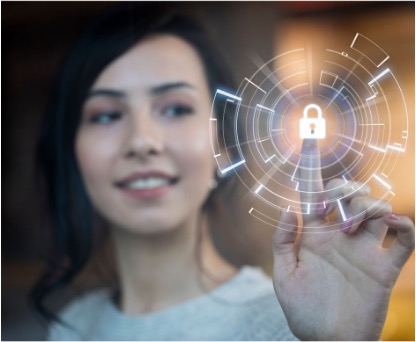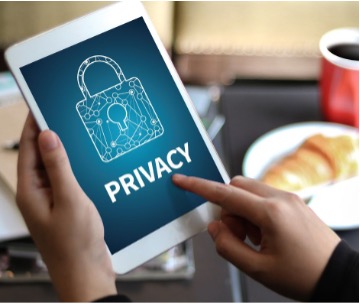
How to Deal with Voyeurs: Safeguarding Your Privacy in a Digital Age
2024-10-03
Indeed, privacy is one of our core human rights, and nowadays it is threatened even further than earlier in this hyper-connectedness-based life cycle. A big contributor in causing this is voyeurship, or in simpler language, people who would creep into other people's rooms either physically or digitally through unauthorized surveillance from mobile, smartphones, and cameras attached for visual material-things that bring consequences out from being extremely disturbing to them across the board.
This blog takes a deeper look at how to identify signs of voyeurism, protect your privacy, and react accordingly to this violation.
Understanding Voyeurism and Its Impacts
Voyeurism encompasses more than just invasion of privacy; it is a violation that may leave emotional scars. Individuals who have been subjected to voyeurism sometimes develop anxiety, fear, and distrust. Being aware of the issue and taking measures to protect yourself is important.
Voyeurs often operate discreetly, and it may be tricky to tell if one is active. However, there are several signs one may look out for:
- Unusual Devices: Finding new cameras, microphones, or any other strange device in one's surroundings may raise an alarm.
- Suspicious Behaviors: Neighbors, coworkers, or friends who are overly concerned about one's affairs or the places one visits should also be scrutinized more closely.
- Strange Noises or Lights: Clicking sounds, small flashing lights, or strange reflections may indicate that hidden surveillance devices have been installed. By being alert and observant, you may uncover voyeuristic activities before they get out of hand.

Improving Physical Privacy
The best defense against voyeurs starts with improving the security of your physical spaces. Practical measures will go a long way in deterring and detecting intrusions.
1. Secure Your Home
- Hang Curtains or Blinds: Thwart the view of others into one's privacies with either thick or blackout curtains.
- Increase Locks: Strengthen doors and windows with new locks to ensure nobody enters the property without knowing.
- Add Outdoor Surveillance Cameras: Place security cameras across the property. This would help discourage voyeurs and also provide substantial evidence in times of a breach.
2. Conduct Regular Inspections
Regularly inspect your home or workplace for indicators of tampering or irregular objects. Common places to find surveillance cameras or microphones include:
- Smoke detectors
- Wall clocks or picture frames
- Air vent or potted plants
- Items on your desk or daily goods, such as pens, USB chargers, or tissue boxes.
3. Use Detection Tools
Presently, the detection of surreptitious surveillance devices is not as challenging as it once was. Apps like Detekcam allow you to scan your surroundings for hidden cameras and other devices. Handheld RF detectors identify wireless signals that such devices emit.
Staying Safe in Public Spaces
Voyeurs don’t limit their activities to private homes; public spaces such as restrooms, changing rooms, hotels, and Airbnb rentals are also vulnerable. Here are some tips for staying safe in these environments:
1. Inspect the Space
Take a few moments to scan your surroundings for unusual objects or signs of tampering. Look for small holes in walls or objects positioned in unusual places.
2. Use Your Phone as a Tool
Your smartphone can be an effective tool for detecting hidden cameras:
- Shine your flashlight at mirrors or suspicious objects. A hidden lens may reflect the light.
- Use apps designed to locate hidden devices by scanning for infrared signals or Wi-Fi connections.
3. Stay in Reputable Locations
Whenever possible, choose hotels, rental properties, or public facilities with good reviews and established reputations. Report any concerns immediately to management or local authorities.

Responding to Voyeurism
It is very disconcerting to find out that someone has been watching or recording you without your permission. The knowledge of how to act effectively in such a situation helps you protect your rights and not let further violations take place.
1. Keep Calm and Observe
If you suspect voyeurism:
- Do not touch any device found so as not to destroy evidence.
- Photograph or video the setting of the incident.
- Note all particular details that might identify the voyeur by their physical appearance or suspicious acts.
2. Report the Incident
- Report to Authorities: A police report may be filed to ensure a paper trail of the incident in question. This may be an important preliminary step in prosecuting the voyeur.
- Inform Property Owners or Managers: If the incident happens in a hotel, rented property, or public place, make sure to immediately contact the authorities concerned.
3. Legally Protect Yourself
You should consult a lawyer to understand all your rights and what legal action is possible against the voyeur.

Increasing Digital Privacy
Voyeurism isn't confined to physical locations; it spills over into the digital world. It is necessary to protect your online and device security to avoid any unauthorized access to your personal data.
1. Fortify Account Security
- Use strong, unique passwords for all your accounts.
- Enable two-factor authentication to add an extra layer of security.
- Regularly update your passwords and do not reuse them across platforms.
2. Secure Your Devices
- Install antivirus software to protect against malware and spyware.
- Keep your operating systems and apps updated to patch vulnerabilities.
- Use a VPN - Virtual Private Network - to encrypt your internet traffic.
3. Monitor Your Online Presence
Review the privacy settings on all of your social media accounts to restrict the audience who can see your posts and personal information. Set up regular online searches of your name to find and manage unauthorized sharing of your content. Seeking Support and Advocacy Voyeurism can leave emotional scars that may take time to heal. It is essential to seek support to reinstate your sense of safety and well-being.
1. Talk to Someone You Trust
Share this experience with a friend, family member, or partner. It may lighten the emotional load.
2. Seek Professional Help
Therapists or counselors can provide ways to deal with anxiety, stress, or trauma caused by the violation.
3. Join Support Groups
Connecting with others who have faced similar situations can provide comfort and practical advice.
4. Advocate for Privacy Protection
Use your experience to raise awareness about voyeurism and advocate for stronger privacy laws. Your voice can help prevent others from becoming victims.

How to Avoid Becoming a Victim Again
The best way to deal with voyeurism is by preventing it from happening at all. By being informed and watchful, you can protect yourself and your loved ones.
1. Stay Educated
Keep up with the latest developments in privacy protection and surveillance technology. It makes a big difference when you know what to look for.
2. Use Technology to Your Advantage
Utilize apps like Detekcam for periodic sweeps of one's environment for hidden devices. These tools are invaluable in maintaining your privacy.
3. Foster a Culture of Awareness
Share with friends, family, and colleagues the importance of prioritizing privacy and security. Share tips and tools that can help them stay safe.

Conclusion
No one should ever have to go through voyeurs, but that is somewhat of a reality in today's connected world. You can safeguard your private and personal life by taking proactive steps to secure your physical and digital spaces, being watchful in public, and responding effectively to incidents.
Remember, your safety and security come first. If one feels the occurrence of voyeurism at any instance, then trust one's instincts to seek help and take action. Together we can create a safer, more secure environment for all.